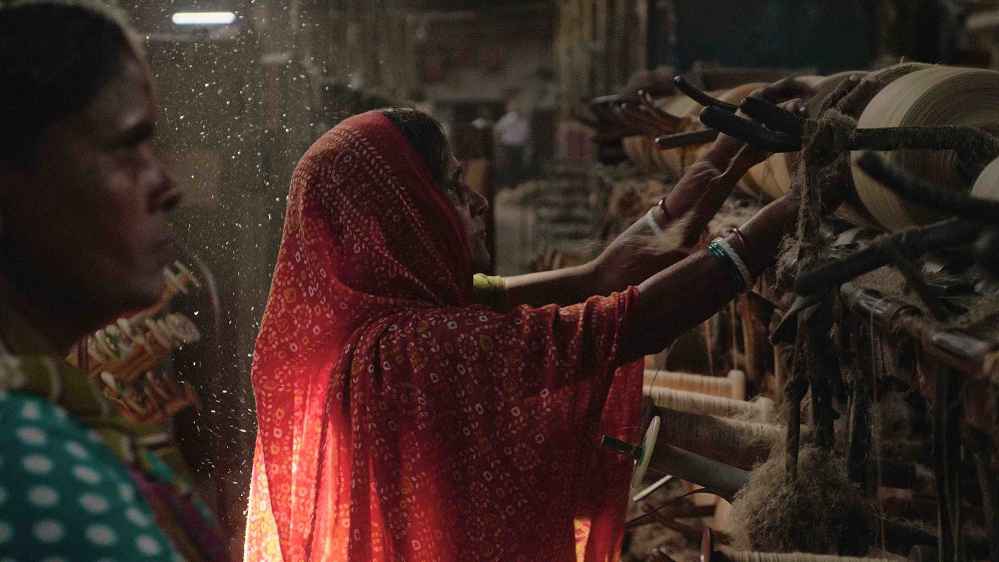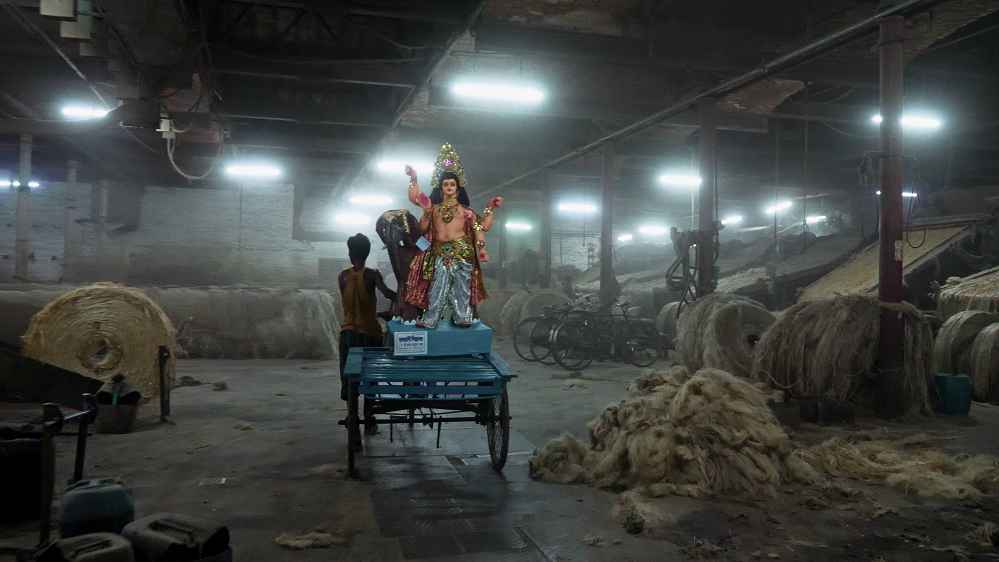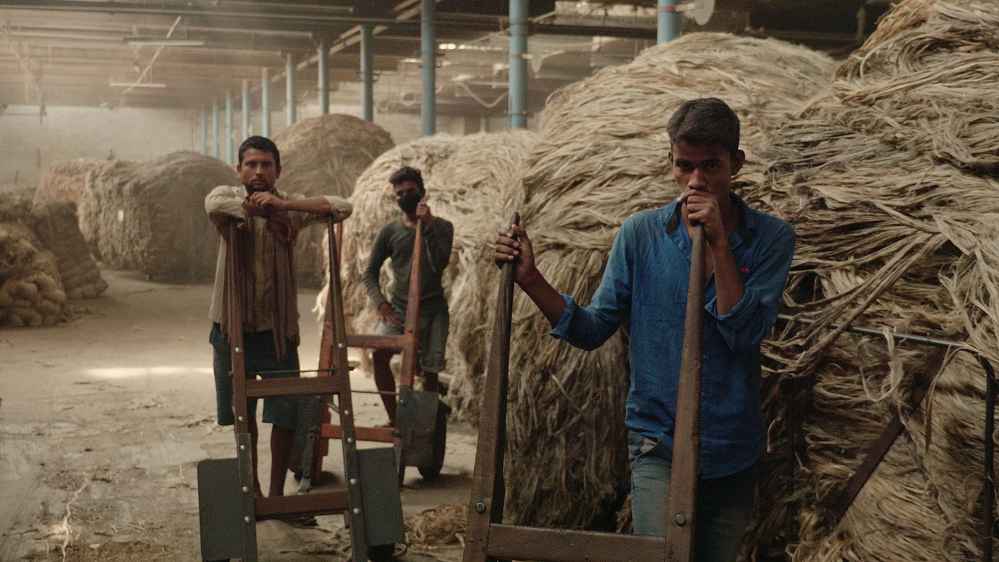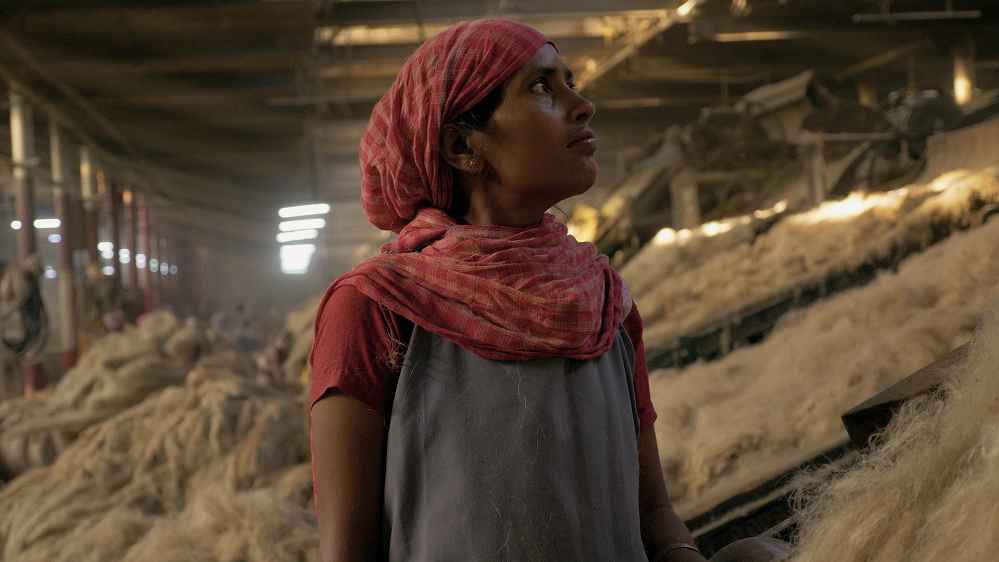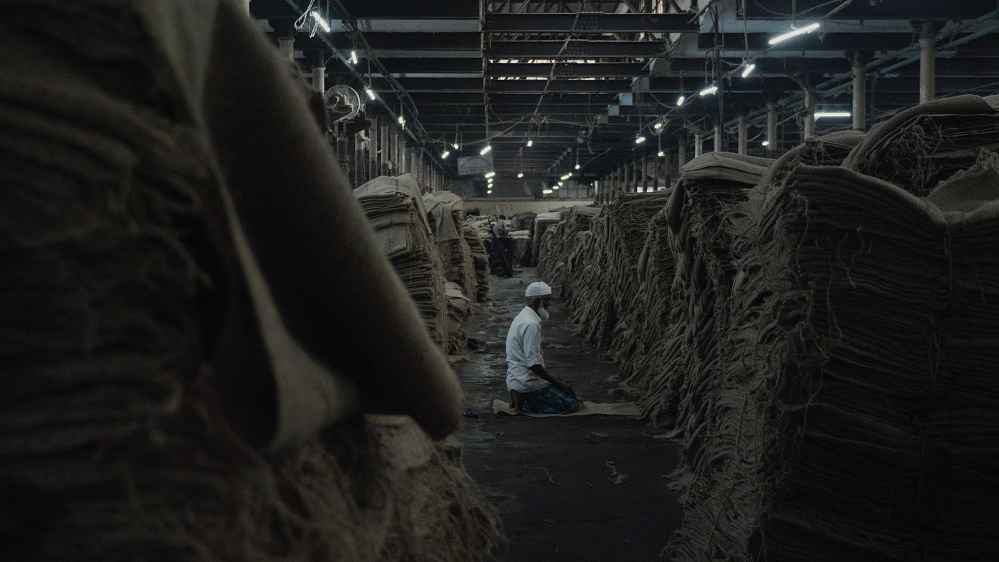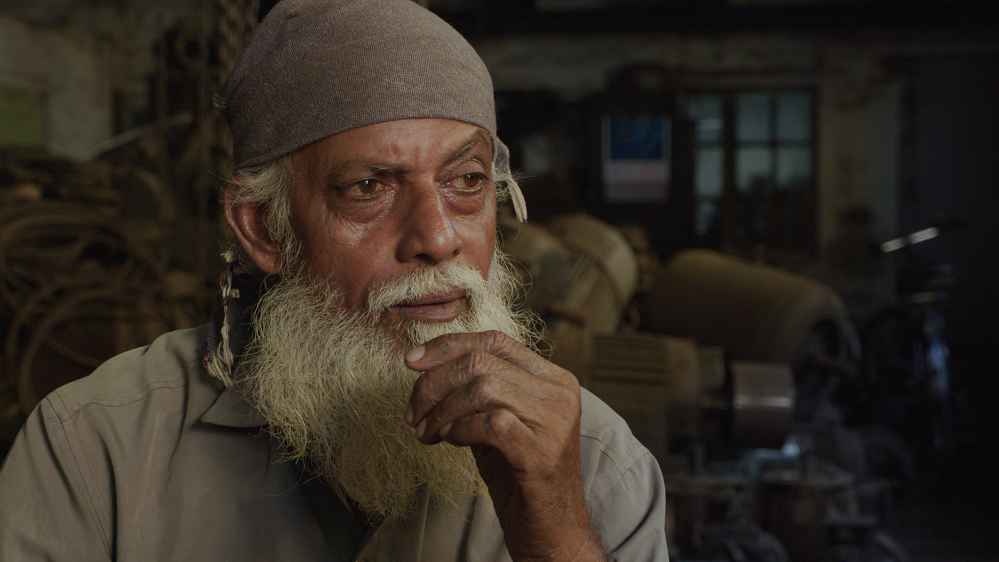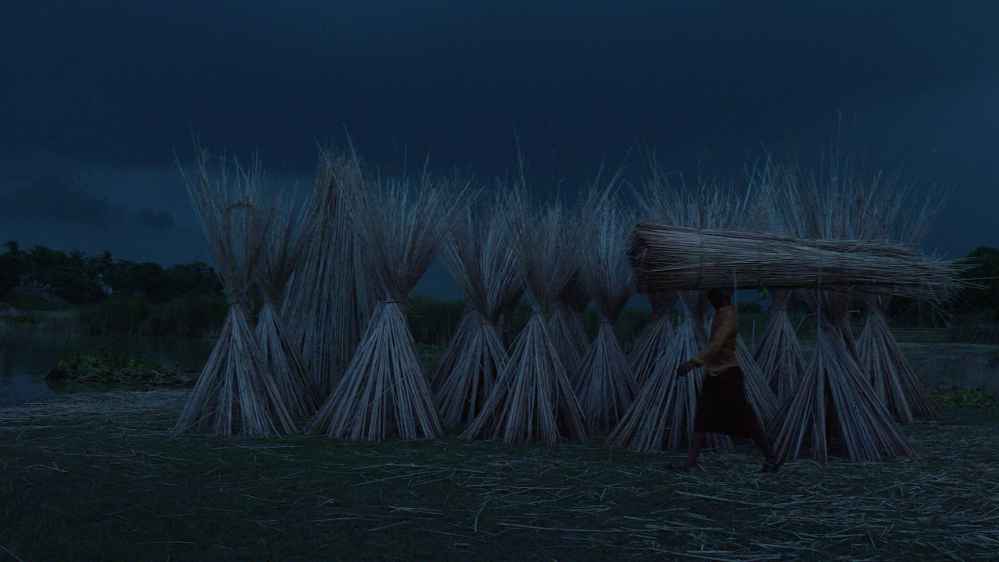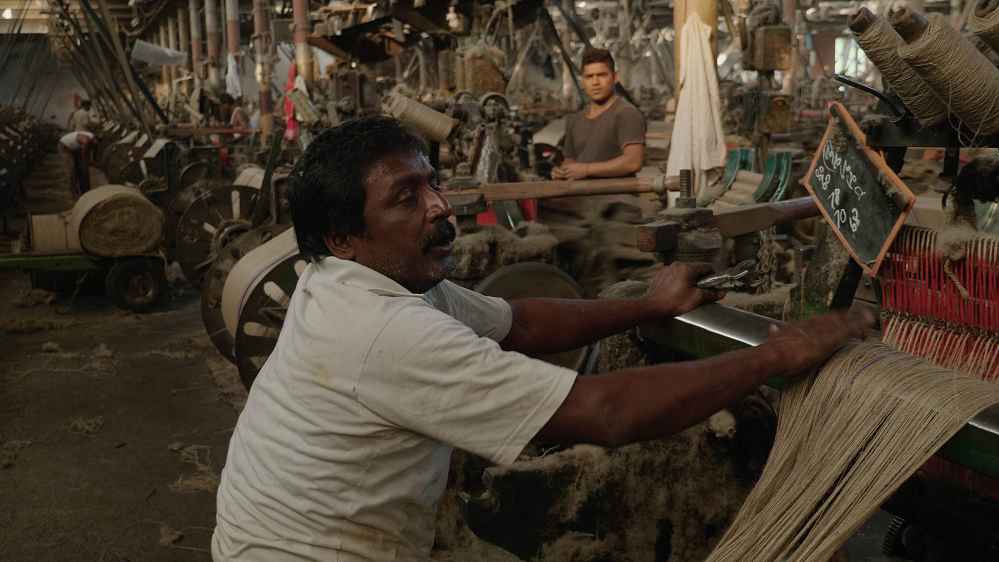The Golden Thread
In the heyday of the jute industry, millions of people in Bengal made their living doing this laborious work, which has hardly changed since the industrial revolution. The 100-year-old machinery has been endlessly repaired. State aid kept this sustainable alternative to plastic going, but its future looks bleak. In beautifully composed shots, Nishtha Jain shows the last vestiges of the industry. She follows the entire production chain, from cutting and drying the reed along the river to weaving in two of the biggest mills in the area. Along endless rows of antique looms, the air thick with dusty fibers, workers carry out their routine work. Accidents and jammed machines are commonplace; workers’ faces reveal the exhaustion of a lifetime of labor. Meanwhile, the union is fighting for a minimum wage equivalent to 250 US dollars a month. During their break, the workers speak out. “Nowadays nobody cares about quality, just more production,” says one. Not long afterwards, one of the mills closes its doors after more than a hundred years.
Nishtha Jain is an internationally-recognized filmmaker based in Mumbai. She is best known for Gulabi Gang (2012), Lakshmi and Me (2007), and City of Photos (2004). Her films examine lived experiences at the intersection of gender, caste, and class. They explore the political in the personal, and uncover the mechanisms of privilege. She’s worked across various platforms: documentary, narrative, virtual reality, and TV series. Her films have been widely screened at film festivals and art-house cinemas, and broadcast on TV. They have won over 25 international awards and have been reviewed by print media and academic journals.

